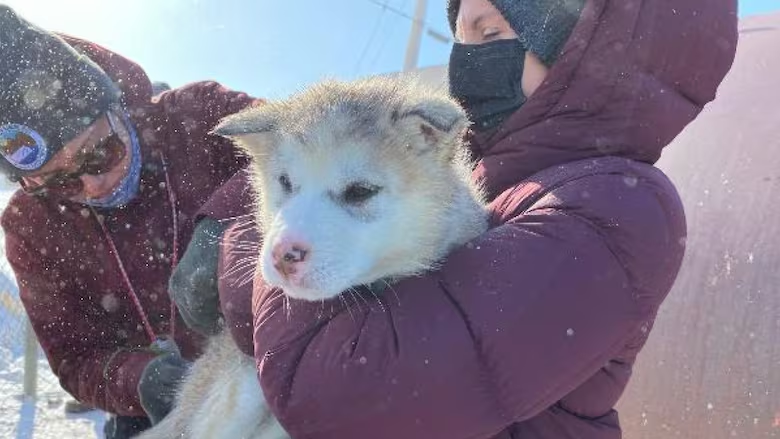Veterinarians Without Borders launches scholarship program in the North
The program is open to Nunavut and Northwest Territories, with priority given to Indigenous applicants

Veterinarians Without Borders (VWB) has announced the launch of a new award program. The Access to Care Awards will provide scholarships and bursaries to northerners with educational pursuits in animal health and wellness.
The program is open to residents of Nunavut and the Northwest Territories, with priority given to Indigenous applicants. Veterinarians Without Borders is an international non-profit animal welfare organization founded in Canada in 2005.
"We are so excited to launch the Access to Care Awards program and support individuals across Canada's North who are interested in pursuing animal health," said Marieke van der Velden, Northern Canada Program Manager at VWB.
Applicants will compete for one $10,000 scholarship available to veterinary students and five $5,000 bursaries available to students pursuing animal-related diploma or certificate programs.
In addition to scholarships and bursaries, there are ten opportunities for members of remote northern communities to take pet first-aid courses, this is open to communities where VWB runs temporary clinics.

"The ideal outcome is for the skills to benefit the community," van der Velden said. "It's also to help find people who are interested in working with us to grow and increase the access in the community."
They will also host online career fair sessions for residents of remote communities throughout the Northwest Territories and Nunavut. The career fairs are designed for teachers and students and will help guide students who are interested in working with animals
"We often meet young people who have never interacted with a veterinarian before and are quite curious," said van der Velden.
She said that it's important that youth and teachers have access to people who are already working in animal health fields and can provide some guidance in pursuing similar careers.
Game changer for remote communities
Troy Bellefontaine lives in Fort Simpson, his full-time job is as a Family Preservation Worker with the Government of Northwest Territories. But he also volunteers his time to help pet owners in the community with animal emergencies. This includes acting as a liaison between pet owners and vet services or animal transportation. He's even trained to administer vaccines.

Although it's a part-time job, the work is almost non-stop. One recent evening, he received three calls from concerned pet owners: a dog that got attacked, a dog with a potential ear infection, and a dog that died from old age that needed to be transported for cremation.
"A lot of people know things happen in the communities but they don't see how often it happens. We really rely on the SPCA because we don't have a vet here," said Bellefontaine.
Bellefontaine has been helping people with their pets in the area for years. It's a dedication that started with, and is still fostered by, his step-mother.
He said it's important for organizations like VWB and the SPCA to come to the remote communities. "I've seen a huge improvement in Fort Simpson with people going to the vet," said Bellefontaine.
He also appreciates the no-judgment approach. He said the VWB team comes to the community and they understand that some people will have outdoor dogs, instead of judging they explain the importance of keeping hay in the kennel or increasing food portions to make up for increased energy use.
"The more education people will get, the more they will learn," he said. "Kids are learning so as they grow up they're learning the best ways to look after their pets; it's all really positive."

At a recent VWB vet clinic in Fort Simpson, students were able to attend and observe appointments and even surgeries. He believes VWB offering award incentives as well as in-community education will encourage people to pursue their education in animal care and bring that back to the North.
Support for northern communities
The award program is part of the Northern Animal Health Initiative. The initiative provides once-a-year access to veterinary care in remote communities. This includes vaccinations, spaying and neutering, and treatment of injuries and illnesses.
Veterinarians Without Borders conducted a study in 2017 that found 54 remote communities of 100 or more people in Canada's three northern territories had little or no access to veterinary services.

"Our goal is to enable further access to care across the North and ensure that all animals and communities can access the support they need, when they need it," van der Velden said.
Applications for the Access to Care Awards will be accepted from Nov. 1 to Jan. 15. Award recipients will be announced in March.

